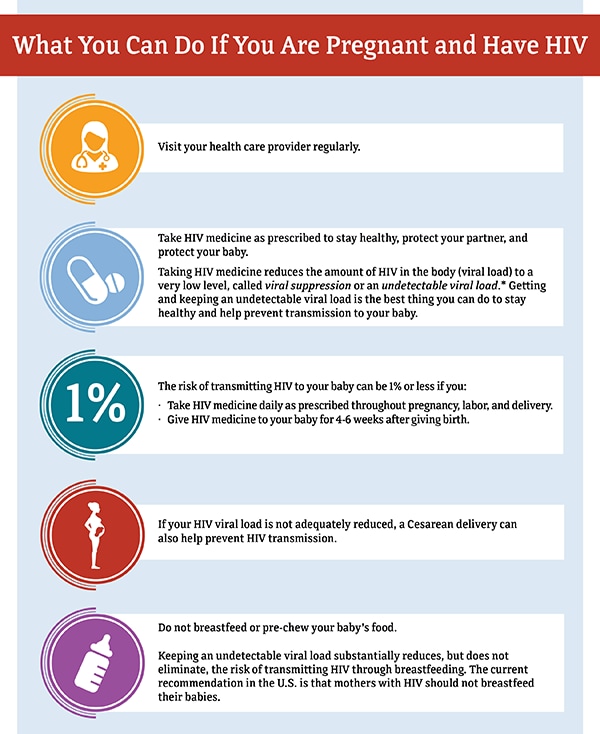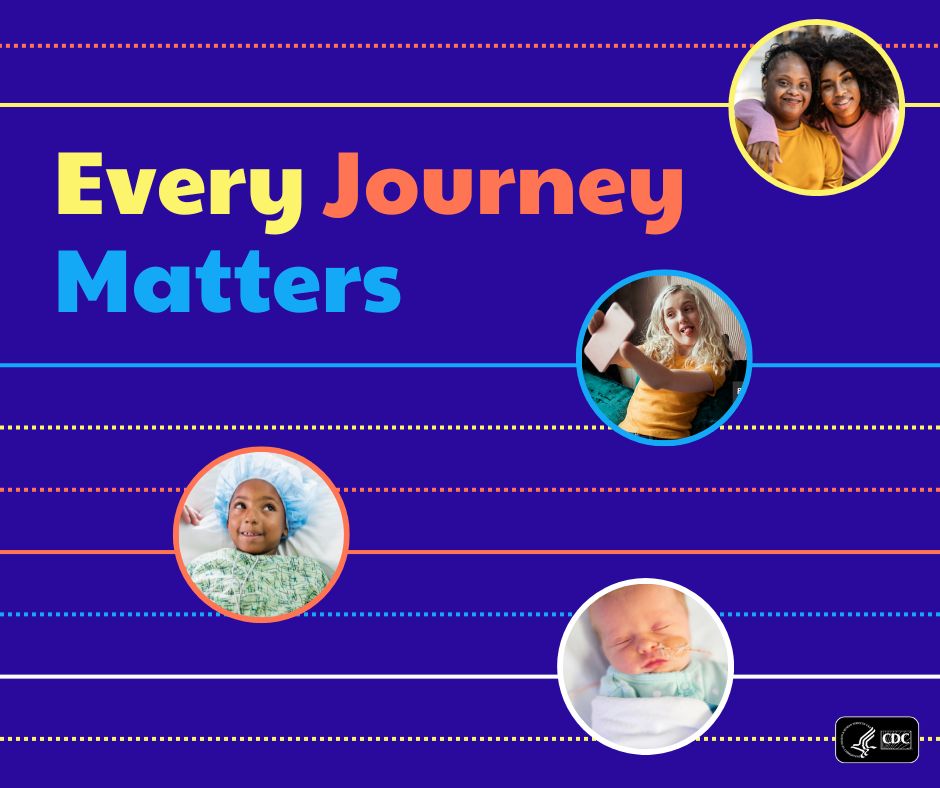Risk for Neural Tube Defects among Pregnancies of Women with HIV

A study from the Centers for Disease Control and Prevention (CDC) found that the risk for neural tube defects (birth defects of the brain and spine) among pregnancies of women diagnosed with HIV is similar to that of the general U.S. population. Scientists will continue to gather information on mothers and babies affected by HIV during pregnancy to better understand the impact of HIV treatment on birth defects.
Read the full scientific article.
Main Findings
- Linking data from birth defects and HIV/AIDS programs, scientists found that the risk for neural tube defects among pregnancies of women diagnosed with HIV is similar to that of the general U.S. population.
- About 1 in every 1,250 babies is born with a neural tube defect each year in the United States.
- The strategies used to gather this information show that linking two independent public health tracking systems can help provide a clearer picture of health issues facing mothers and babies.
- HIV treatment options change over time and continued efforts to collect information on pregnancies affected by HIV infection are needed to better understand the link between HIV treatment and neural tube defects.
About This Study
- CDC worked with 15 U.S. states and territories to gather information on more than 64,000 women (aged 13–44 years) living with HIV.
- CDC and its partners will continue to collect information on mothers and babies affected by HIV during pregnancy to understand if any specific treatments are associated with birth defects.
About Birth Defects
Birth defects are structural changes that can affect almost any part of the body, such as the heart, brain, or foot. Birth defects are common, costly, and critical conditions that affect 1 in 33 babies born each year in the United States.
Our Work
CDC’s National Center on Birth Defects and Developmental Disabilities (NCBDDD) strives to save babies through birth defects prevention and research. NCBDDD uses birth defects tracking and research to identify causes of birth defects, find opportunities to prevent them, and improve the health of those living with birth defects. Learn how NCBDDD makes a difference.
More Information
- Preventing Birth Defects
- 5 Ways to Lower the Risk of Neural Tube Defects
- Living with HIV: Family Planning
Scientific Reference
Reefhuis J, FitzHarris LF, Gray KM, Nesheim S, Tinker SC, Isenburg J, Laffoon BT, Lowry J, Poschman K, Cragan JD, Stephens FK, Fornoff JE, Ward CA, Tran T, Hoover AE, Nestoridi E, Kersanske L, Piccardi M, Boyer M, Knapp MM, Ibrahim AR, Browne ML, Anderson BJ, Shah D, Forestieri NE, Maxwell J, Hauser KW, Obiri GU, Blumenfeld R, Higgins D, Espinet CP, López B, Zielke K, Jackson LP, Shumate C, Russell K, Lampe MA. Neural tube defects in pregnancies among women with diagnosed HIV infection — 15 jurisdictions, 2013–2017. MMWR. 2020 Jan 10; 69: 1–5.

